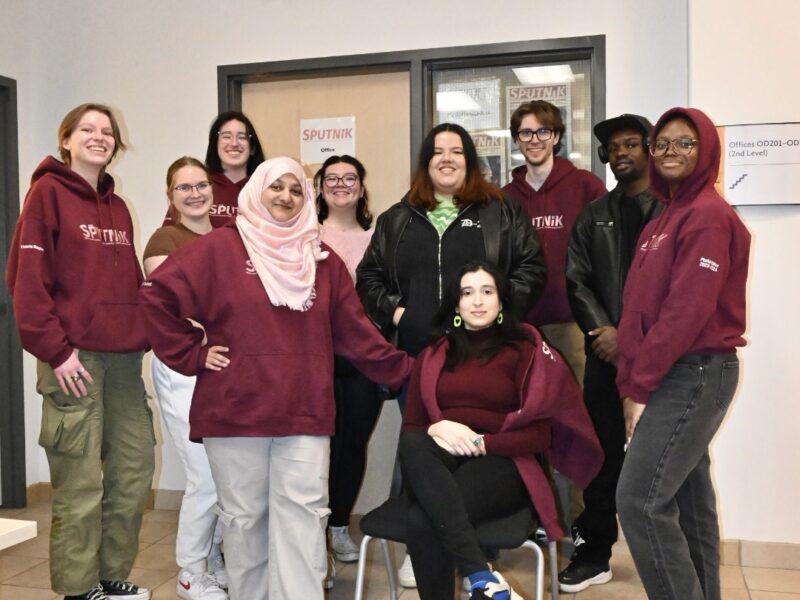Sometimes when I’m cooking, I need noise in the background that is not music. This is how, one evening, while randomly looking for a podcast on Spotify I came across Krystyna Hutchinson and Corinne Fisher.
These two ladies are New-York based stand up comedians who have a weekly podcast called “Guys We F****d.”
Don’t judge me, I was just randomly pressing buttons.
I had no idea what to expect from this podcast. Was it going to be a couple of girls gossiping about their sex lives, and of course, as gossip entails, the sex lives of others? Was it going to be a vent session about how male-oriented mainstream pornography is? I had no idea what I was getting into, all I knew is I needed something to get me through my weekly meal prep.
10 minutes in, and I was hooked. The girls are funny, unabashedly vulgar, and honest to a fault. And they are completely relatable – no matter what your sexual experience has been. They talk unashamedly about those early teen experiences with kissing and holding hands, to exploring your sexual identity, and that first real relationship.
When it comes to sex, it’s almost impossible to be a university student – or even just to be someone who remotely pays attention to the media – and not think of sexual assault. Or maybe that’s just me, but everywhere I look these days I am blown away with stories, whether celebrity or civilian, about people coming forward about their sexual assault experiences.
And then, I started seeing it on campus. Yes, my campus, this campus, your campus, our campus. I’m talking about being at club NV and seeing that guy kissing that girl who looks extremely uncomfortable. I’m talking about those 3 a.m. conversations with your friends when someone reveals that they have experienced assault. I am also talking about those conversations with your male friends about experiences they’ve had, because sexual assault is not an exclusively female experience.
And then, it turns into those conversations that are a grey area. ‘Yes, that made me uncomfortable, but was that sexual assault?’ Or, ‘everything was technically consensual, but I don’t know, I just felt weird,” and of course, the ‘I was drunk, and I wanted it. When I was sober, I didn’t feel the same way.”
A prime example in the media was the story about Aziz Ansari. The popular comedian was accused of sexual misconduct (which is the word that everyone seems to have settled for) by a woman he met at the Golden Globes. I won’t go into the details of the encounter because that’s already been analyzed to pieces – and of course, everything you want to know is already online.
I want to talk about the two sides of the coin. The woman felt violated. The man felt that this wasn’t his intention, so how did he end up with the finger pointing at him? It’s that grey area. The outrage that this woman, like many before her, felt that she was assaulted. And, if we’re being honest here, there are the men who are aware that they are violating someone and do it regardless, and then there are the men who like Ansari, feel like they were on a different page.
So, what is the answer here? How do we ensure that our experiences and the experiences we provide others, are consistently and constantly consensual? And not just consensual for both parties, but enjoyable? Is there an answer?
And this is where the ladies of “Guys We F****d” brought me a new perspective. First, they highlight that it is not up to us to validate or invalidate someone’s experience. And then, they say, “I wish more people would take the time to be present during sex.”
Be present. If that guy at NV was present, there’s no way he would have missed how uncomfortable the girl looked.
If you pay attention, and you’re mindfully present, you will feel your partner’s vibes and pick up on their non-verbal cues. As humans, we are constantly communicating whether intentionally or unintentionally. Observe these cues. And of course, talk to your partner. Ask them what they want, or don’t want. This is not just your experience, it’s a shared experience. Don’t be someone’s Ansari.



